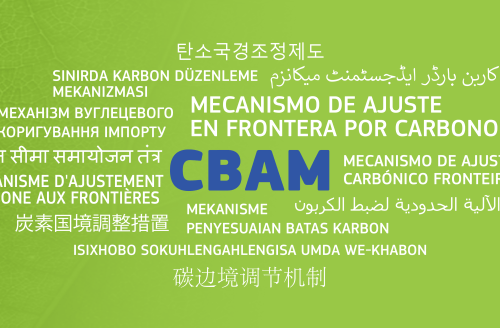The question of what the pace of academia should be is becoming increasingly urgent in the modern world. The organic rhythm that once guided the academic world—allowing for reflection, deep inquiry, and the nurturing of intellectual growth—has given way to a culture of constant acceleration. Today, the pace of academia is dominated by a race for citations, high-impact publications, and the pressure to produce research in rapid succession. But what are the consequences of this accelerated pace, and how does it affect the essence of academic life?
Table of Contents
The Lost Organic Pace of Academia
Historically, academia operated at a pace that encouraged thoughtful engagement with ideas and a genuine pursuit of knowledge. Scholars were given the time and freedom to explore their research without the constraints of immediate publication pressures. This slower, more deliberate pace fostered intellectual growth and a deeper understanding of the subjects being studied. It allowed academia to function as a space where ideas could develop over time, leading to innovations that were thoughtful and impactful.
However, the organic pace of academia has been eroded by the relentless drive for measurable outputs. Scholars are now judged by how frequently they publish, how often they are cited, and the impact factors of the journals in which they appear. The result is a system that prioritizes quantity over quality, speed over substance. This academic rush has created an environment where scholars often feel pressured to publish quickly, sometimes without fully developing their ideas, and to meet external expectations rather than pursuing the deeper intellectual goals of their work.
The Current Academic Pressure
The accelerated pace of modern academia has far-reaching consequences. The pressure to produce a large volume of work within a short timeframe can lead to superficial scholarship and, in some cases, unethical practices such as data fabrication, vague theorizing, or the recycling of research ideas. As scholars race to meet the demands of the system, the quality and integrity of the knowledge produced suffer, leading to a widening knowledge gap. Read about competitive chaos in academia here.

Moreover, this pressure is not limited to scholars. Students are also affected by the fast pace of academic life. Educational programs have become increasingly structured and rigid, leaving little room for students to explore their own interests, develop their perspectives, or take the time to think critically about what they are learning. The current academic model often leaves students feeling as though they are part of a production line, expected to churn out research papers or projects without the time or space to deeply engage with the material.
The Need for a Balanced Academic Pace
Given these concerns, the question arises: What should be the ideal pace of academia? The answer lies in striking a balance between productivity and intellectual depth. Academia should not be a race, but rather a thoughtful process of discovery and learning. The pace of academia should be such that it allows for meaningful engagement with ideas, for careful research, and for the kind of reflection that leads to real innovation and understanding.
A more balanced pace would give scholars the time they need to produce high-quality work that contributes to the advancement of knowledge in meaningful ways. It would allow for a deeper exploration of ideas, rather than the rush to publish for the sake of maintaining academic standing. Scholars would have the freedom to follow their intellectual curiosities, to experiment, and to fail, without the constant pressure of meeting publication quotas or citation benchmarks.
For students, a balanced academic pace would mean a more enriching educational experience. Rather than being rushed through their studies, they would have the time to explore different ideas, engage in critical thinking, and develop their own intellectual identities. This would foster a deeper connection to the material, helping students to become not just knowledgeable, but wise—individuals capable of contributing thoughtfully to society.
Academia as a Space for Wisdom, Not Production
One of the most significant problems with the current pace of academia is that it treats knowledge as a product to be manufactured and consumed. Academia is increasingly viewed as an industry, where scholars are expected to produce research as quickly and efficiently as possible, much like a factory producing goods. However, academia is not meant to function like an industry. Its purpose is not to produce research for immediate consumption, but to cultivate wisdom, foster intellectual growth, and explore the complexities of human life and society.
By focusing too much on output, academia risks losing its deeper purpose. The real value of knowledge lies in its ability to transform individuals and societies—not just in its measurable impact. Academic work should enrich our understanding of the world, helping us to see the bigger picture and to make connections between seemingly unrelated ideas. It should contribute to the collective wisdom of society, fostering critical thought and moral reflection.
The Optimum Pace of Academia
In considering the pace of academia, it becomes clear that the current system is not sustainable. The rush to produce more and more research is not leading to better outcomes, either for scholars or for society. Instead, it is creating an environment where superficial knowledge prevails, and the deeper purposes of education and scholarship are being lost.
The pace of academia should be such that it encourages thoughtful, reflective work. Scholars and students alike need time to think, to explore, and to engage with ideas in a meaningful way. A slower, more deliberate pace would not only improve the quality of the research being produced but would also make academia more accessible to a broader range of people. In a more balanced academic environment, there would be more room for diverse perspectives, for interdisciplinary collaboration, and for the kind of deep thinking that leads to true wisdom.
Rethinking the Rhythm of Academia
The question of what the pace of academia should be is ultimately a question about the values we wish to uphold in higher education. Do we want an academic system that prioritizes output and metrics, or one that fosters deep learning and intellectual growth? By slowing down the pace of academia, we can create a system that is more in line with the true purpose of education: to explore the complexities of life, to foster wisdom, and to contribute to the betterment of society.
The pace of academia should allow for reflection, creativity, and the thoughtful generation of knowledge. By reclaiming a more organic rhythm, we can ensure that academia remains a space where learning is valued not for its immediate utility, but for its ability to enrich our lives and the world around us.
FAQs
Why is it important to reconsider the current pace of academia?
Reconsidering the pace of academia is essential because the current speed often prioritizes quantity over quality, leading to superficial scholarship, unethical practices, and a knowledge gap. This rapid pace diminishes the true purpose of academia—deep learning, intellectual reflection, and the cultivation of wisdom. Slowing down would allow scholars and students to engage meaningfully with their work and foster critical, thoughtful knowledge-building.
How does the fast pace of academia negatively impact students?
The fast pace of academia often limits students’ ability to explore their interests, reflect on their learning, and develop their own intellectual perspectives. The rigid, output-driven academic system leaves little room for creativity or critical thinking, turning education into a standardized, production-line process. A slower pace would allow students to grow intellectually, develop wisdom, and engage deeply with the material they are studying.
In what ways does the current academic system resemble an industry, and why is this problematic?
The current academic system mirrors industrial practices by focusing on measurable outputs, such as frequent publications, high citation counts, and impact factors. This “production-line” mentality prioritizes speed and efficiency over intellectual depth and ethical considerations. Academia, however, should be about fostering wisdom and understanding the complexities of life and society, rather than mass-producing research for immediate utility. This shift threatens the ethical and philosophical foundations of education.
What would an optimum academic pace look like?
An optimum academic pace would strike a balance between productivity and intellectual depth. It would provide scholars and students with the time and space to explore ideas deeply, think critically, and engage meaningfully with their work. This slower pace would foster high-quality research, encourage ethical scholarship, and allow students to develop intellectual autonomy, thus leading to more thoughtful contributions to society.
How would a organic pace benefit the broader society?
A organic pace in academia would produce more thoughtful, reflective scholarship that contributes meaningfully to societal knowledge. It would also make academia more inclusive, allowing diverse perspectives to emerge and engage with academic work. This would help bridge the gap between academia and society, making education and knowledge-building processes more accessible and connected to real-world issues. Ultimately, a more reflective pace would enhance both personal intellectual growth and collective wisdom.





